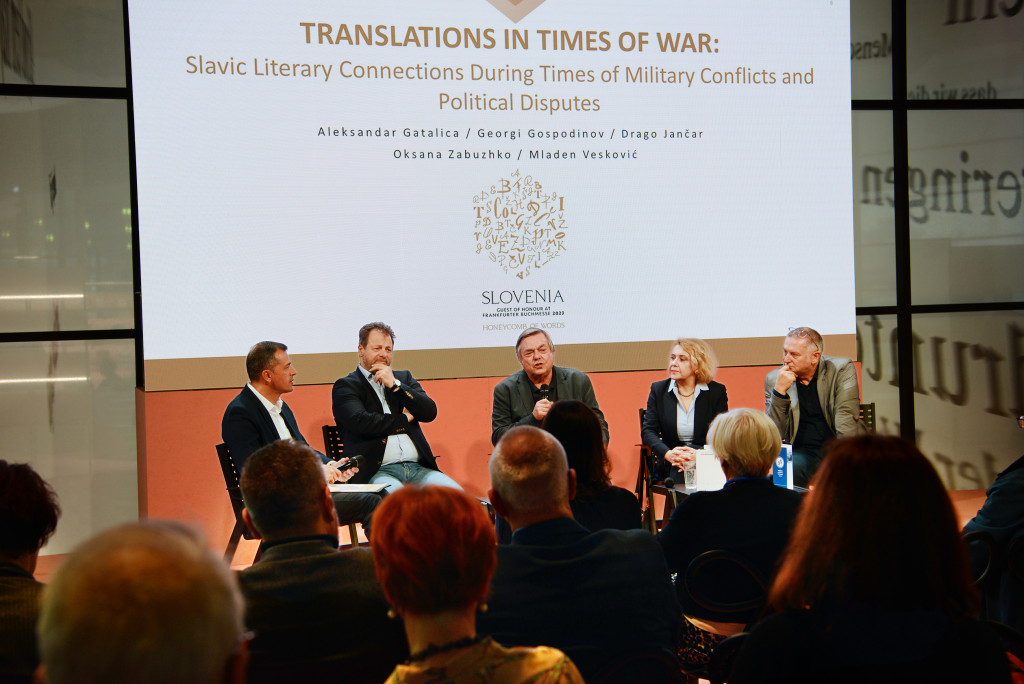As part of the Slovenia, guest of honour programme at the 75th Frankfurt Book Fair, the FSK organised a discussion entitled Translations in times of war: Slavic literary contacts in times of armed conflicts and political confrontations, featuring Slovenian Drago Jančar, Ukrainian writer Oksana Zabuzhko, Georgi Gospodinov from Bulgaria and Serbian author Aleksandar Gatalica. The discussion was moderated by Mladen Vesković, Editor-in-Chief of the 100 Slavic Novels collection.
Although the Slavic languages are close to each other and are mostly related and even contact cultures that have developed in close interaction with each other, their literary relations are not always harmonious and continuous, but often move from periods of intense contact to periods of lack of interest, even rejection. The break-up of Yugoslavia, the transition and the current war in Ukraine have had a profound impact on cultural links.
Participants talked about their experiences with writer links and cooperation during the war in the former Yugoslavia. They agreed that wars and conflicts put minor literatures in the spotlight, but unfortunately not for the right reasons. This is because interest is driven primarily by a desire to understand the situation, often overlooking that, as Aleksandar Gatalica put it, the fiction is not a history textbook, but a work of imagination. Literature remains in the background in the event of war, noted Drago Jančar, who said that in the 1990s he maintained contact with his writing colleagues, but that translations had dwindled at that unfortunate time.
Oksana Zabuzhko pointed out that literature from the former Yugoslavia is valued and much translated in Ukraine, in her opinion because it captures well the human experience of war. Lesser literatures, she argued, only become of interest when something big and bad happens in a country – like war. This used to be the case with Czech and Polish literature, but now Ukrainian literature is at the forefront. She also touched on the relationship between Ukrainian and Russian writers.
Georgi Gospodinov pointed out the stereotypical expectations in the reception of literature from certain countries. »But in Bulgaria we fall in love, we marry, we divorce, we die of natural causes,« said this year’s winner of the International Booker Prize.
Gatalica concluded by stressing the importance of the 100 Slavic Novels collection, which, with its so far hundred translated prose highlights, promotes better understanding, closer contacts and promotion of Slavic literatures.
The entire debate is available here:
https://www.youtube.com/watch?v=aTrZDK9D8uQ
Foto: Sabine Felber

